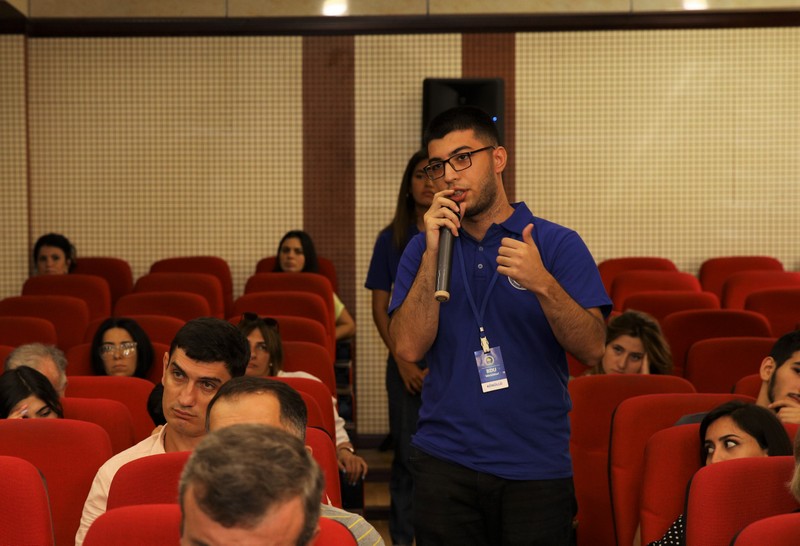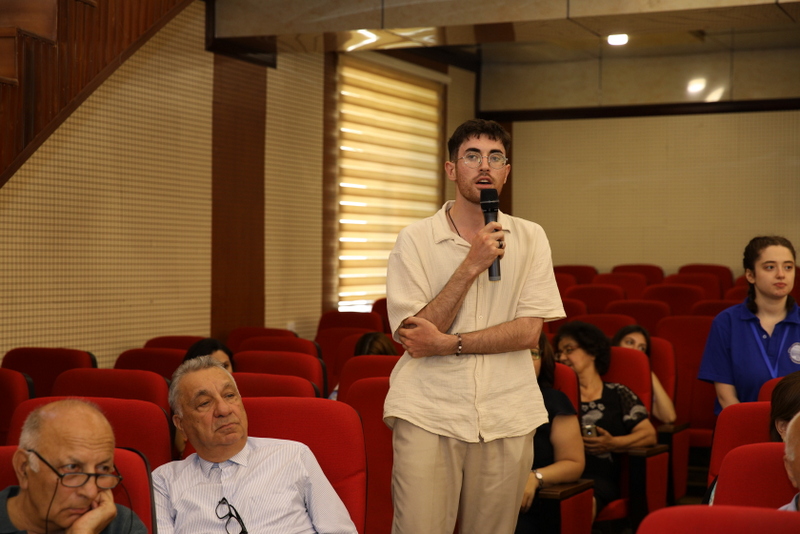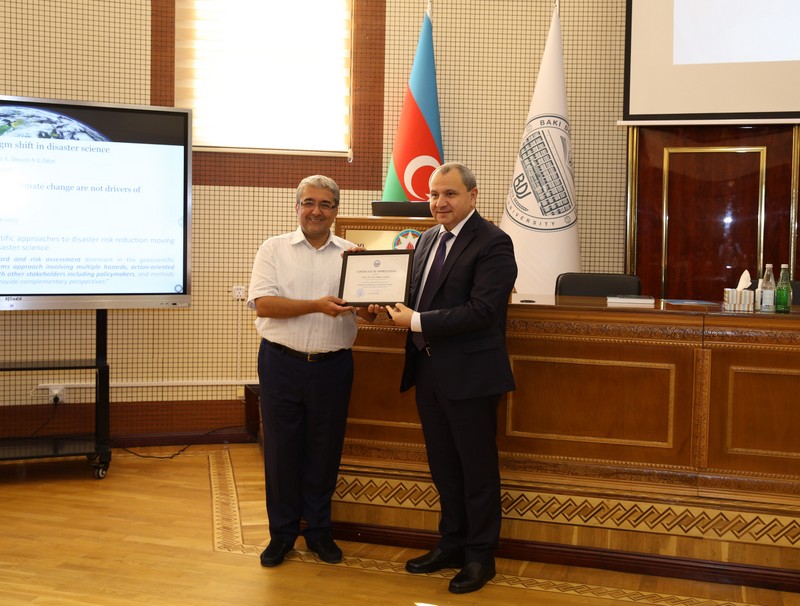Professor of the Karlsruhe Institute of Technology delivers lecture at BSU
Alik Ismail-Zadeh, Research Professor at the Karlsruhe Institute of Technology has delivered lecture at Baku State University.
BSU Rector Elchin Babayev made the opening speech. He stressed that BSU graduates represent our country abroad on a high level. One of our successful graduates is Alik Ismail-Zade.
Alik Ismail-Zadeh made presentation entitled "Advancing Frontiers of Disaster Science". Scientific discoveries based on Earth observations, data analysis, and modeling, which are integrated into hazard, vulnerability and exposure studies, help in risk assessments and advance frontiers of disaster science.
In the first part of the lecture he discussed how basic geophysical science and natural hazard research (particularly, seismic and volcanic hazard analysis) contributes to risk assessment and disaster science. Understanding of the lithosphere dynamics, large earthquake occurrences, volcanic eruptions, and hazards associated with the events has significantly advanced during the last decades. Geohazard analysis, modeling, and forecasting help in development of preventive measures aimed to reduce impacts of extreme events. For example, numerical modelling of lithosphere dynamics and earthquake simulations coupled with a probabilistic seismic hazard analysis can provide a better assessment of potential ground shaking due to future large earthquakes. Modeling of lava dome growth, its potential collapse, and lava/pyroclastic flows contribute to volcanic hazard assessments. The severity of hazard impacts is growing with increasing vulnerability, exposure, interconnectivity, and the social complexity as well as with failures in risk reduction, public awareness, building resilience, and policymaking.
In the second part of the lecture, he discussed the nexus between the scientific knowledge on natural hazards, vulnerability, and exposure, and preparedness to and public awareness about natural hazards and risks of disasters. Convolving natural, engineering, social and behavioral sciences and practices with policymaking should significantly improve measures to reduce disaster risks. To this end, a fundamental change in scientific approaches to disaster risk reduction is needed by shifting the current emphasis on individual hazard and risk assessment dominant in the geoscientific community to a transdisciplinary system analysis with action-oriented research on disaster risk reduction co-produced with multiple stakeholders, including policymakers. This paradigm shift in disaster science will allow for acquisition of policy-relevant knowledge and its immediate application to evidence-based policy and decision making for risk reduction. Holistic, interdisciplinary, co-designed and coproduced, and convergent approach to scientific research should be developed to communicate the obtained knowledge for informed decision making in a form of usable messages and proposed political and economic actions with the goal of making the available knowledge be used by policymakers and be useful for the society.
 |
 |
 |
 |
